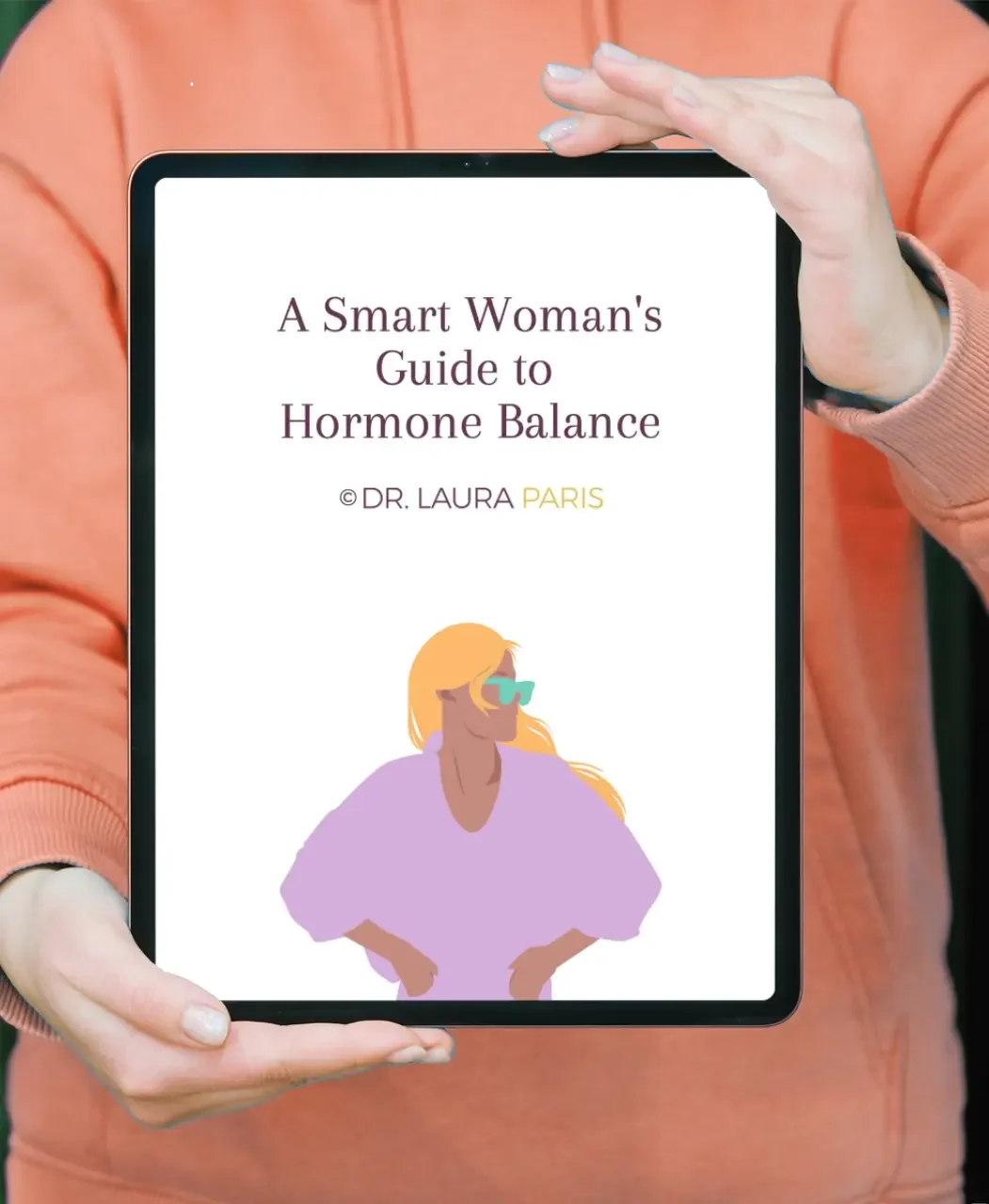
Are you ready to take charge of your health?I help women achieve vibrant health through all phases of life with a personalized, holistic approach.
Sign up for my newsletter and get your Free Gift:
A Smart Woman's Guide to Hormone Balance

Sign up for my newsletter and get your Free Gift:
A Smart Woman's Guide to Hormone Balance

If you experience bloating, headaches, sore breasts, fatigue, brain fog, depression, anxiety, or irritability leading up to your period, know that these symptoms aren’t “just part of the cycle.” Many women accept PMS as inevitable, but with the right holistic approaches, it’s possible to have a symptom-free premenstrual experience. Imagine a month when you’re surprised when your period starts—no painful reminders beforehand!
In this post, we’ll look at how nutrition for PMS can be a game-changer. We’ll explore the essential vitamins, minerals, and fatty acids shown to reduce PMS and PMDD symptoms. Additionally, we’ll discuss how nutrient deficiencies, even in an otherwise healthy diet, can contribute to PMS. The modern food supply often lacks sufficient vitamins and minerals due to changes in soil quality and food processing methods, so ensuring nutrient adequacy is crucial.
When it comes to managing PMS with nutrition, several minerals, vitamins, and essential fats stand out for their research-backed benefits.
Inflammation can intensify PMS symptoms, so it’s essential to focus on fats that help reduce inflammation. During menstruation, the body produces prostaglandins and histamine, which can exacerbate cramping and other discomforts.
For those who have histamine sensitivities (manifesting as rashes, hives, or food reactions), adding quercetin (400 mg two to three times a day, away from meals) can help stabilize histamine levels.
Even with a balanced diet, nutrient deficiencies can persist. Testing key nutrients through lab work can identify specific deficiencies that may be contributing to PMS. Once you know your levels, you can replenish what’s missing through foods or targeted supplementation, creating a tailored approach rather than guessing. The supplement industry is wildly unregulated, so be sure to use trusted brands.
If you’re looking to manage PMS holistically and naturally, considering your nutritional intake is a powerful first step. However, if nutrient replenishment alone doesn’t resolve symptoms, it may be time to explore deeper functional medicine approaches to discover why you’re not having healthy and optimal menstrual cycles. In addition, acupuncture and herbal medicine can be highly effective for PMS. If you’re interested in personalized guidance, reach out! I’d love to help you find relief and balance in your cycle.

Dr. Laura Paris is a women’s health specialist who provides Acupuncture and Functional Medicine care at her two clinics in Capitola and Monterey, California. She also works with women remotely in the United States through telehealth appointments. Learn more about Laura here, and message her directly here.
Click the button to talk to Dr Laura on a 20-minute discovery phone call ($67)